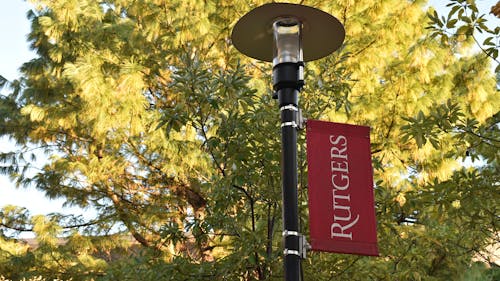Rutgers administrators, faculty provide updates on Academic Master Plan in second town hall event

Rutgers—New Brunswick administrators and faculty joined together virtually on Tuesday to take part in the University’s second town hall event to further discuss the future of the Academic Master Plan (NB-AMP).
This event comes after the first town hall, held on Oct. 28, and primarily focused on progress and updates on the project from the steering committee, which mainly covered emerging themes, goals and actions relating to the plan.
“The ultimate goal is to develop an Academic Master Plan that positions Rutgers University—New Brunswick for success,” said Salvador B. Mena, vice chancellor for student affairs. “(Through) the planning process, we will create a strategy that prioritizes academic excellence.”
He began by reiterating the plan’s three main components: the academic vision statement, how the campus community will work together and what the community will do to achieve the statement’s goals.
Mena said the first component will aim to identify what the University’s academic priorities are, the second will focus on deciding as a community what specific academic programs should be developed and invested in and the third will be the actual actions of making progress and engagement with the campus community.
Wade Trappe, professor in the Department of Electrical and Computer Engineering, said that a major focus for the group working on the first component so far has been trying to collect data from the community at large to understand the different perspectives.
He said his group has tried to create a process by which they can take collected data and input to discern what the goals, strengths and weaknesses are that the community has found and to understand why they arrived at that.
“Although every strength and weakness is important for us to understand, some of them are going to be more important than others,” Trappe said. “And in particular, we, in group one, are trying to digest and come to an understanding as to what are going to be the true differentiators for Rutgers moving forward.”
Laura Lawson, dean of academic programs in the School of Environmental and Biological Sciences, said that common themes of areas to focus on were highlighted after observing feedback from focus groups describing some strengths and weaknesses.
“We see great opportunities for interdisciplinary discourse, engagement and collaboration,” she said. “We need to tell a much better story about our use of location and how it makes us unique and how it really equips us to have some special opportunities for our students and for our researchers.”
Lawson said that other emerging themes for improvement discussed in the feedback included internships, co-ops and experience-based education, as well as rankings for programs where improvement could include strengthening STEM at Rutgers and utilizing the University’s physical space in the best possible way.
“We need to develop a physical master plan for Rutgers—New Brunswick that aligns with the Academic Master Plan,” she said. “Our physical spaces show to me signs of deferred maintenance, our labs and classrooms can't compete with other schools. And we need to reinvest along the lines of as we develop our academic excellence.”
Denise Hien, associate dean of academic affairs and professor in the Graduate School of Applied and Professional Psychology, said that in her group, which leads the innovative and inclusive research component of the project, they have to come to the agreement of including the concept of inclusivity as a theme when thinking about research and scholarship.
“Some emerging themes that you'll hear, I think not only reflected in our work group, but across all of the three components are one, the importance of considering community or publicly engaged scholarship,” she said. “The second is the importance of considering and promoting interdisciplinarity. And the third is how do we sustain the strengths that we have here already? And that would tap into things such as infrastructure.”
In terms of how the NB-AMP can be used to distinguish Rutgers among its peers, Trappe said the process of creating the plan itself has allowed them to recognize the positive qualities of the University and its advantages of being located in New Jersey.
He said that going forward, the University will try to better take advantage of being between two major metropolitan areas to provide students access to the best possible experiences in all types of industry in the area.
“I think what's going to come out of this is that we're going to really focus on how we can take advantage of what really makes us unique,” Trappe said. “And frankly, you're not going to find this small world microcosm, if you will — you're not going to find that in much of the rest of the Big Ten (Conference), for example.”



